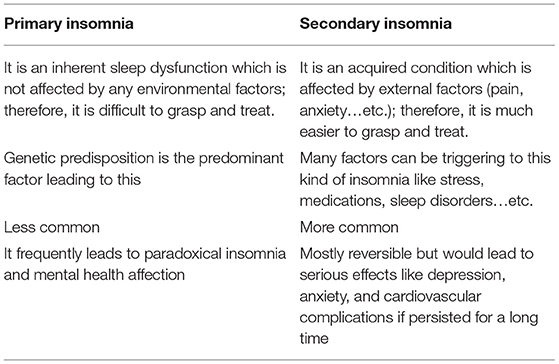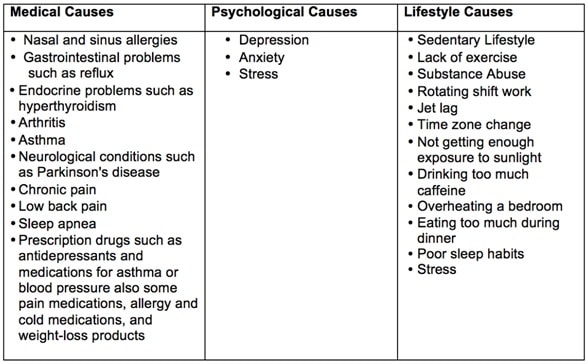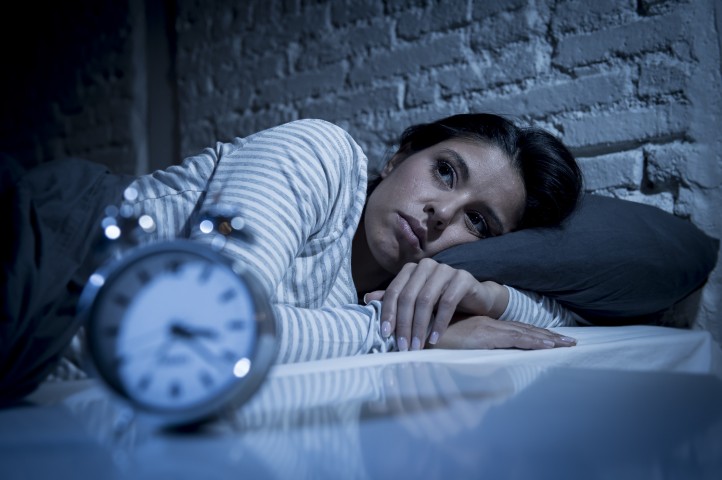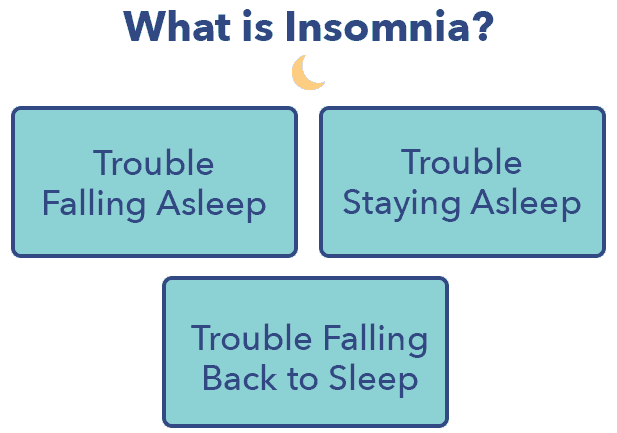Types of Insomnia:- There are two types of insomnia -
1. Primary insomnia: This means your sleep problems aren’t linked to any other health condition or problem.
2. Secondary insomnia: This means you have trouble sleeping because of a health condition (like asthma, depression, arthritis, cancer, or heartburn); pain; medication; or substance use (like alcohol).

Causes of Insomnia:-

Symptoms:- Insomnia negatively affects daytime functioning, leading to one or more of the following symptoms:-
1. Fatigue or daytime sleepiness
2. Malaise (feeling unwell)
3. Poor attention or concentration
4. Impaired performance (errors, accidents)
5. Reduced energy or motivation
6. Behavioral problems (i.e., hyperactivity, impulsiveness, aggression)
7. Inability to nap
8. Headache, upset stomach, and chronic pain complaints
In addition to the above daytime symptoms, mood disorders, like anxiety or depression, are commonly associated with insomnia. Depression may be associated with early morning awakenings and difficulty returning to sleep. Anxiety may leave your mind buzzing at night, worries washing over you as you try to get to sleep. When sleep becomes difficult to obtain, this may fuel the fires of anxiety, making matters worse and fueling a vicious cycle.
Moreover, insomnia may affect serotonin levels and the function of the frontal lobe of the brain. The frontal lobe is responsible for various executive functions, which are key in making rational choices and appropriate social interactions. Impairment can be so significant that the ability to suppress suicidal thoughts, or even the outright impulse to kill oneself, may be lost.
Ayurvedic View of Insomnia and Treatment Options:-

In Ayurveda, Insomnia is known as Anidra. According to the Ayurvedic view, the factors responsible for insomnia are Tarpak Kapha, Sadhak Pitta, or Prana Vata. Tarpak Kapha is a sub-dosha of Kapha. It nourishes the brain cells and facilitates a good night’s sleep. Imbalance of this dosha causes poor nourishment of brain cells, leading to Insomnia. Sadhak Pitta is a sub-dosha of Pitta and is located in the heart. It controls emotions, desires, decisiveness, and spirituality. Its imbalance makes a person demanding and workaholic, thereby leading to situations that may cause lack of sleep. Prana Vata is a sub-dosha of Vata (Air). It is linked to insomnia, worry, anxiety, and problems like depression. Prana Vata makes the nervous system sensitive; this sensitive nervous system, coupled with an aggravated Prana Vata, leads to insomnia. The treatment protocol includes pacification of aggravated dosha and strengthening the nervous system. With proper herbal preparations, lifestyle correction is important along with proper exercise.
Useful Herbs for the treatment of insomnia are:-

Brahmi: It is a powerful brain tonic that supports and improves all aspects of mental functioning. It is a calming and tranquillising herb.
Vacha (Acorus calamus) has been used in Ayurveda for the treatment of various ailments, such as epilepsy, headache, and insomnia etc.
Aswagandha: This is an overall tonic for greater vitality and longevity. It enhances coordination between the mind and senses, which, according to Ayurveda, is essential for good sleep.
Jatamansi: It has been found to increase levels of neurotransmitters like serotonin. It is a sedative, anti-depressant, and anti-epileptic cardio-tonic and is regarded as one of the most effective remedies for neurosis. Though it normally has a sedative effect on the central nervous system and is used to tranquillise an anxious or over-stressed person, it has been observed that it can also stimulate someone who is suffering from fatigue. This is because it balances the organs and systems of the body.
Valerian: Indian valerian, also known as tagar in Hindi, works on the nerve channels by clearing out toxins from the blood, joints, tissues, colon, and nerves. Its basic role is to rejuvenate.











